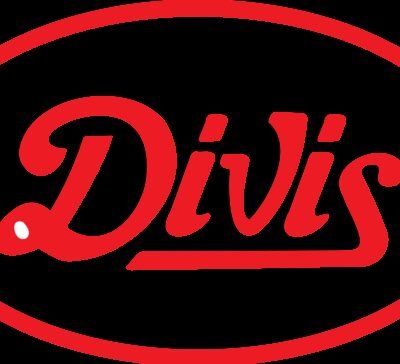Target (TGT) released its first quarter report, revealing a drop in comparable sales year over year, adding to growing signs that cracks in consumers’ resilience are beginning to form. Is this a signal that the economy is beginning to slow? Founder and president of Rosenberg Research David Rosenberg joins Morning Brief to discuss the recent shift in consumer behavior and how the economy’s movements may affect the Federal Reserve’s future policy decisions.
“The data aren’t supporting that we’re in a recession dot, dot, dot just yet. And as for the consumer, it’s not contracting. However, you’re seeing a major shift in behavior, much more toward frugality. You’re seeing that in terms of trading down, you’re seeing that in terms of what the retailers are saying in terms of how the consumption patterns are shifting towards staples and essentials and away from big-ticket discretionary items,” Rosenberg tells Yahoo Finance.
He also notes that consumers are spending less at restaurants, an “early warning sign” of a “fundamental” shift in behavior. The change may seem trivial, but Rosenberg says it’s “actually something that we should be keeping our eyes on.”
For more expert insight and the latest market action, click here to watch this full episode of Morning Brief.
This post was written by Nicholas Jacobino
Video Transcript
Let’s talk about a big theme that we are watching here at Yahoo Finance and that’s a consumer.
We’ve gotten earnings results out this morning from Target that follows Walmart last week and a number of other big retailers all warning that inflation is starting to hurt and has been hurting the consumer.
This coming ahead of the fed speak that we are getting later today.
Officials widely expected to strike that cautious tone that we have been hearing all week.
The fact that the data isn’t giving us enough evidence to at least for the fed to cut rates.
Now, the FO MC meeting M meeting minutes are also set to be released this afternoon.
So here to tell us what that means for the markets, the economy, where things stand today, we wanna bring in David Rosenberg, he’s Rosenberg research founder and president David.
It’s good to have you.
So let’s just take a step back.
Just give us your sense of the consumer right now, the strength of the economy and the consumer’s ability here to withstand these higher rates for longer.
Well, I think that uh the economy was strong uh in the past tense and of course, we had 3% real GDP growth last year.
Uh And so much of that was predicated on really three things.
Uh the credit card boom.
Uh the last leg of the excess savings uh draw down uh all that pandemic era savings from the stimulus checks got spent.
And of course, we had tremendous fiscal stimulus.
I mean, imagine last year to get the 3% growth.
Uh it coincided with a 35% expansion in the fiscal deficit.
It just causes your eyes to roll.
But that’s a story for the economy.
But as we saw in the first quarter, you know, GDP growth, 1.6% probably gonna get revised down.
So the economy is weakening.
Um It’s uh the data aren’t supporting that we’re in a recession dot dot dot Just yet.
And as for the consumer, um it’s not contracting, however, you’re seeing a major shift in behavior, uh much more towards frugality.
You’re seeing that in terms of trading down.
Uh, you’re seeing that in terms of what the retailers are saying, in terms of how the consumption patterns are shifting towards staples and essentials and away from big ticket, the discretionary items.
And then when you start hearing stories of, uh Ferraris and Lamborghinis, uh being parked outside your local Walmart, uh, you know, things are even changing for the, uh, for the high income crowd.
Yeah, seeing a lot more May backs outside the planet Fitness too.
David one of the huge things that I think we’re continuing to try and get a sense of is not just the way that the consumer is defined, but also what they’re doing in the near term to offset some of the stickier parts of inflation.
And, and namely, it’s gonna be interesting to see in the fed meeting minutes later on today how they’re continuing to evaluate things like energy and things like home owners equivalent rent as well right now in the shelter and energy uh calculus of the inflationary picture too.
What are you expecting there?
Yeah.
Well, you know, very interesting comment because uh you know, the Atlanta Fed that does us a great service.
And after the CP I numbers come out, uh they create two series, uh one’s called the flexible CP I uh which moves with the economy and represents things that people can actually actually substitute away from.
And then there’s the sticky CP I uh and that is basically things uh as you had mentioned, um not easy uh to substitute away from gasoline uh unless you’d rather walk than drive.
And you mentioned insurance.
Well, you’re still gonna insure your home and you’re still gonna have health insurance.
Um That’s been your primary source of the deviation of inflation so far this year.
Uh Rents are proving to be sticky because of the lag nature in terms of how the BLS constructs it uh in uh in both the CP I and the PC deflator data, as Jay Powlett said, these, the rental part will disinflate more forcefully.
But over time, there’s just more inherent lags in that particular component.
But, you know, in terms of how are consumers responding.
Well, as I said before, they are trading down, uh you know, uh they’re going more towards um uh you know, private labels from brand labels.
They are um shifting their consumption patterns uh away from expensive items to cheaper items.
They’re really, uh you can see it in the data from spending on durable goods.
Uh That is really, I mean, there’s no more really.
I mean, all that demand has been satiated.
You see that with Peloton as an example.
So, um, they’re basically trading down.
Uh and uh, that’s manifest itself, I think, and something that we saw in last week’s retail sales report, which is that the grocery chains are actually seeing more activity.
Uh And that’s why Walmart’s numbers were so strong.
Uh, being such a massive food retailer at the expense of what, because we still have to eat at the expense of restaurants.
Uh So all of a sudden a lot of the stuff, you know, the part of the YOLO spending you only live once and the reopening trade, all that spending on services and especially on restaurants because restaurants are, you know, that you don’t have to eat at a restaurant, you could eat in your kitchen.
And so that’s something that you’re starting to notice, you know, before the consumer starts to contract, everybody’s saying, where’s the recession?
Where’s the recession?
You know, the study of economics is ultimately the study of social behavior.
And you’re starting to see those early warning signs that people are fundamentally shifting their behavior and this relative shift from restaurants uh to spending some time with the family in the kitchen and cooking at home, that’s actually something that we should be keeping our eyes on.
Well, David, when you take a look though, at the surge that we’re seeing in commodities in gold and silver, even the run up that we had seen in oil, does that suggest to you that this inflation issue, it’s far from under control or where do things then stand today?
Well, actually, you know, everybody was saying, um you know, after, especially after the um the onset of the conflict in the Middle East, uh and then when with Iran sending these missiles into uh uh into Israel uh last month, uh that oil, oil was supposed to be going over $100 a barrel.
Uh Where’s that?
Uh Everybody and after OPEC did their production cuts extended them, we’re supposed to have oil over $100.
These are the experts on oil.
So you, you just showed a chart before that we’ve fallen below $80 a barrel on wt I where, where’s the inflation in that?
Uh Copper has its own idiosyncratic short squeeze situation much like nickel did a couple of years ago.
Um That’s not really leading to a broadening out of the commodity base.
Uh So in answer to question, uh uh you know, there’s I’m not saying this broad-based commodity led inflation, you mentioned gold.
Yes, gold.
Uh because uh the PPOC is ongoingly shifting its foreign exchange reserves from dollars into gold.
That India is the strongest economy in the world, their retail demand for gold is going uh in a huge upward trajectory.
This this is just a you know, a shift in in Asian consumption, one by a huge central bank, the other by uh consumers in the one area of the world that’s growing.
Uh you know, 9%.
There’s no other really story there, there’s no inflation story for gold.
It’s just what’s happening in India and China.
Uh As far as the inflation is concerned, look 100% of that deviation.
Everybody is just so anally retentive on the deviation and inflation in the opening months of this year.
Uh 100% of that deviation from the disinflation trend in 2023 100% of it has come from insurance, health insurance, auto insurance, home, and tenant insurance.
Um They’re not really moving with the economic cycle I mentioned before about the Atlanta fed the Atlanta fed course sticky which moves with the cycle and is actually contains the goods and services that the fed actually has an influence over this year of the year.
Core flexible is running minus 0.3 year of a year.
It’s deflating and it’s deflated now for two straight months.
Nobody talks about it.
Well, they talk about the fact that the core sticky is running at 4.5%.
But by definition, sticky prices don’t normally go down.
Sticky.
Prices are not the things unless the fed wants to raise rates to 20 or 30%.
How is the fed going to have any influence over auto insurance?
Which has been this year’s?
Yeah, when the, when the meeting minutes drop later on today, we’re gonna see how they’re talking about it.
At least in those federal Open Markets committee meetings.
David Rosenberg, Rosenberg, research founder and president.
Thanks for the time this morning.
Pleasure.
Thanks for having me on.





